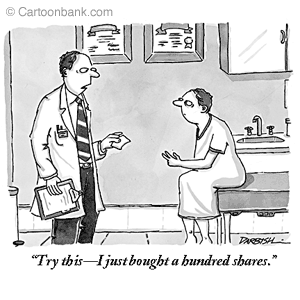Conflicts of Interest: What to Do When the Decision Is Not Clean-Cut

Integrity is a quality that most, if not all, public relations employers are looking for in prospective employees. With ethical conduct comes responsibility — the responsibility of staying true to your publics, your company and yourself. But oftentimes stakeholders have diverging motivations, and sometimes these clash and result in (potential) conflicts of interest.
We are all members of different groups. Whether you belong to a group in the local community, a professional organization, a newsroom or an agency, there is potential risk of ending up in a complicated situation where interests clash and not every decision made will best benefit one’s interests.
According to PRSA’s Professional Standards Advisory PS-11, “Conflicts of interests have the potential to undermine or compromise the impartiality, credibility or trustworthiness of a practitioner due to the possibility of a clash between a practitioner’s self-interest and a professional-interest, or their public-interest, or their client’s interest.”
What does this mean? Whenever there is a situation in which there could be some sort of gain (financial, social, professional, etc.), there is room for a potential conflict of interest. Without honesty, transparency and trust, our credibility as public relations professionals disappears, so disclosing your affiliations and being aware of making decisions that could potentially generate a conflict of interest is a good way to be proactive and act ethically.
Emmanuel Tchividjian, PRSA’s Board of Ethics and Professional Standards member, and ethics officer at the public relations agency Ruder Finn, said it is very common to see client conflicts in the agency world. Client conflict is defined in PRSA’s PSA-11 as “… when invited to represent the interest of one client, whose interests, products, services and even operating philosophy are at odds with existing clients already employing you.” This also includes situations where a conflicting client hasn’t been active for a while.
Tchividjian said Ruder Finn occasionally experiences issues about representing clients that are competitors, and that the agency does not work with both clients unless both parties are fully aware and grant approval.
“If a potential new client could be a competition, we tell both parties, rule of thumb. If no parties find a problem then we don’t have a problem,” Tchividjian said.
To decide on whether to pursue a new client or keep the current one, look at different factors such as how the relationship is going between the client and the firm, and whether this new potential client would cause any harm to the current client, Tchividjian added.
Here are a few steps you can follow after identifying a situation where there could be an ethical conflict of interest:
- Analyze the situation in the most objective way possible.
- Think of all the parties affected and the potential consequences each party might face once a decision is made.
- Be transparent and disclose the information you know to the affected parties.
- Talk to someone (an adviser, mentor, family member) and ask for input.
- Once you have the information and advice you need to make a conscious and intelligent decision, make one and stand by it.
Some decisions will be easy and some others won’t, but as Tchividjian said, “You need courage and need to take risks.”
Would you have the courage to tell your boss you won’t work with a client due to a potential conflict of interest? How would you approach the situation?
Check out the PRSA Code of Ethics, the Ethical Decision Making Guide, and the Professional Standard Advisory PS-11 for more information and guidance on conflicts of interest and ethical decision making.
Andrea Gils is a senior at Southeast Missouri State University and is completing two bachelor’s degrees in mass communication with emphasis in public relations and journalism and a minor in TESOL. She is part of PRSSA National’s Diversity and Ethics Subcommittee and is volunteering on the communications committee of the PRSA St. Louis Chapter. You can follow her at @andreagils and connect with her on LinkedIn.
